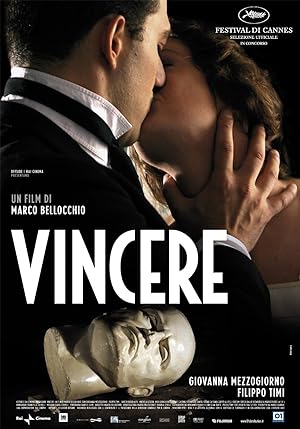So many lush & arresting images. A magnificent masterpiece that I wish that I was brilliant enough to analyze & could go back in time and watch in the theaters! Part love letter to the power of movies, particularly silent films, & homage to the early shots on the silver screen, the story is both a screed against and love story as metaphor for how Mussolini treated his country, but Mussolini is not the star. Giovanna Mezzogiorno is mesmerizing, powerful & transcendent as Ida Dalser, Mussolini’s alleged first wife. The constant movement of both the camera and the masses, especially as contrasted with, reminded me of early Russian cinema. Vincere was brilliant to use both old movie footage and use similar techniques such as silent images interspersed with subtitles showing date or themes to transport viewer emotionally and visually to that time. In many ways, it reminded me of early vampire films with both Ida and Benito starting as equals and finally evoking Nosferatu during their first consummation and kiss-constantly Benito looking into the horizon and looming over her. Also the use of time is fascinating as time periods bleed throughout the film as shots belonging to one period are interspersed in the linear narrative which is evocative of splicing different film reels and forebodes the destiny of the main characters. The most overtly political visual moment is the film’s indictment of Mussolini’s hypocrisy as his men embrace a church that he does not believe in, and there is little difference between fascist men in black shirts and members of the clergy as they survey all that they control, but eventually the cult of motherhood, not as Fascists imagined it, but as epitomized by Ida and the nuns as they are eventually united and given victory by the film if not in real life. [Prof Giuliana Bruno’s words echoed through my head– about the revolutionary act of women walking and actively viewing as opposed to being confined to home–seizing acts once enjoyed only by men. I really need to reread her books.]





